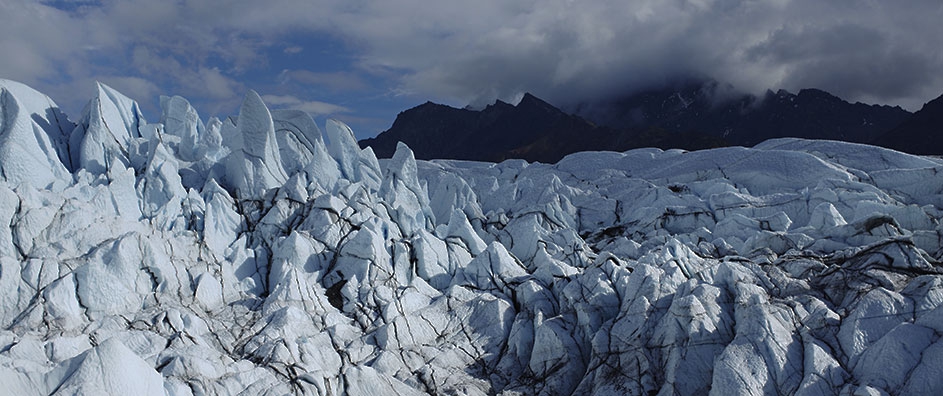The views expressed in our content reflect individual perspectives and do not represent the authoritative views of the Baha'i Faith.
I know you’ve heard the old sayings: when hell freezes over; it’ll be a cold day in hell; a snowball’s chance in hell. We all envision hell as hot, right?
Number five on our list of the astounding things you didn’t know about hell: Hell did freeze over.
Throughout history, many myths and stories have portrayed hell as a frozen wasteland. In fact, the whole idea of hell may have started that way.
Buddhist, and especially Tibetan Buddhist depictions of hell, describe sixteen hellish places called Narakas, eight of them hot, but eight bitterly cold. Beings in these zones of terrible cold suffer naked and alone in continual blizzards of snow and ice. Those with terrible karma inhabit these frozen hells. This description probably holds immense foreboding and terror for the people of Tibet, living as they do at such high, icy altitudes in the Himalayas.
In the Islamic tradition, the freezing hell called Zamhareer presents a similar vision of extreme coldness, with unbearable blizzards, unending snow and the chilling prospect of an icy, shivering eternity.
In Christianity, some of the earliest depictions of hell, which began with the Apocalypse of Paul in the early third century and continued with other early Christian writers like Saint Bede from the seventh century, featured a freezing, ice-encased place where sinners felt no warmth forever. And in the most famous Christian vision of the underworld, Dante’s Inferno (Italian for hell), the author describes the worst neighborhood in Hades as a frozen lake of blood and guilt named Cocytus. The lake, in the innermost circle of Dante’s Inferno, encases traitors and fraudsters in perpetual ice. Cocytus comes from the continual tears of The Old Man of Crete, a statue that represents the sins of all humans.
How did these glacial visions of “cold as hell” originate—and what was their purpose?
In many of the fearsome tales of a frozen hell, we can see a two-fold meaning: a metaphorical warning to avoid the soul-chilling consequences of hatred and hostility; and a symbolic depiction of the human soul in its evolving journey towards the divine.
This warning, consistent through most religions, educates us about the two classical aspects of justice: reward and retribution. For thousands of years, religion has spoken to humanity in metaphorical language, promising a bountiful spiritual reward for those who follow the loving, kind examples of the Prophets; and warning of the spiritual consequences for the individual souls who ignore those examples and choose to focus only on their lower natures. These messages have varied in their intensity and content, but they have always emphasized the same essential ideal, asking us to aspire toward the enlightenment of our souls.
In the Inferno, the first part of his epic poem the Divine Comedy, Dante uses the journey through hell as an allegory of the suffering of the human spirit as it moves ever closer to God. The poem describes our individual recognition of what makes life sinful, and how we can conquer and reject those forces.
In the same way, the Baha’i teachings present us with a similar allegorical story of our human journey through life. Abdu’l-Baha, when asked about the necessity of that journey, answered this way:
The reality underlying this question is that the evil spirit, Satan or whatever is interpreted as evil, refers to the lower nature in man. This baser nature is symbolized in various ways. In man there are two expressions: One is the expression of nature; the other, the expression of the spiritual realm. The world of nature is defective. Look at it clearly, casting aside all superstition and imagination…. God has never created an evil spirit; all such ideas and nomenclature are symbols expressing the mere human or earthly nature of man. It is an essential condition of the soil of earth that thorns, weeds and fruitless trees may grow from it. Relatively speaking, this is evil; it is simply the lower state and baser product of nature.
It is evident, therefore, that man is in need of divine education and inspiration, that the spirit and bounties of God are essential to his development. That is to say, the teachings of Christ and the Prophets are necessary for his education and guidance. Why? Because They are the divine Gardeners Who till the earth of human hearts and minds. They educate man, uproot the weeds, burn the thorns and remodel the waste places into gardens and orchards where fruitful trees grow. The wisdom and purpose of Their training is that man must pass from degree to degree of progressive unfoldment until perfection is attained. For instance, if a man should live his entire life in one city, he cannot gain a knowledge of the whole world. To become perfectly informed he must visit other cities, see the mountains and valleys, cross the rivers and traverse the plains. In other words, without progressive and universal education perfection will not be attained.
Man must walk in many paths and be subjected to various processes in his evolution upward… Briefly, the journey of the soul is necessary. The pathway of life is the road which leads to divine knowledge and attainment. Without training and guidance the soul could never progress beyond the conditions of its lower nature, which is ignorant and defective. – Abdu’l-Baha, The Promulgation of Universal Peace, pp. 294-296.

















Comments
Sign in or create an account
Continue with Googleor